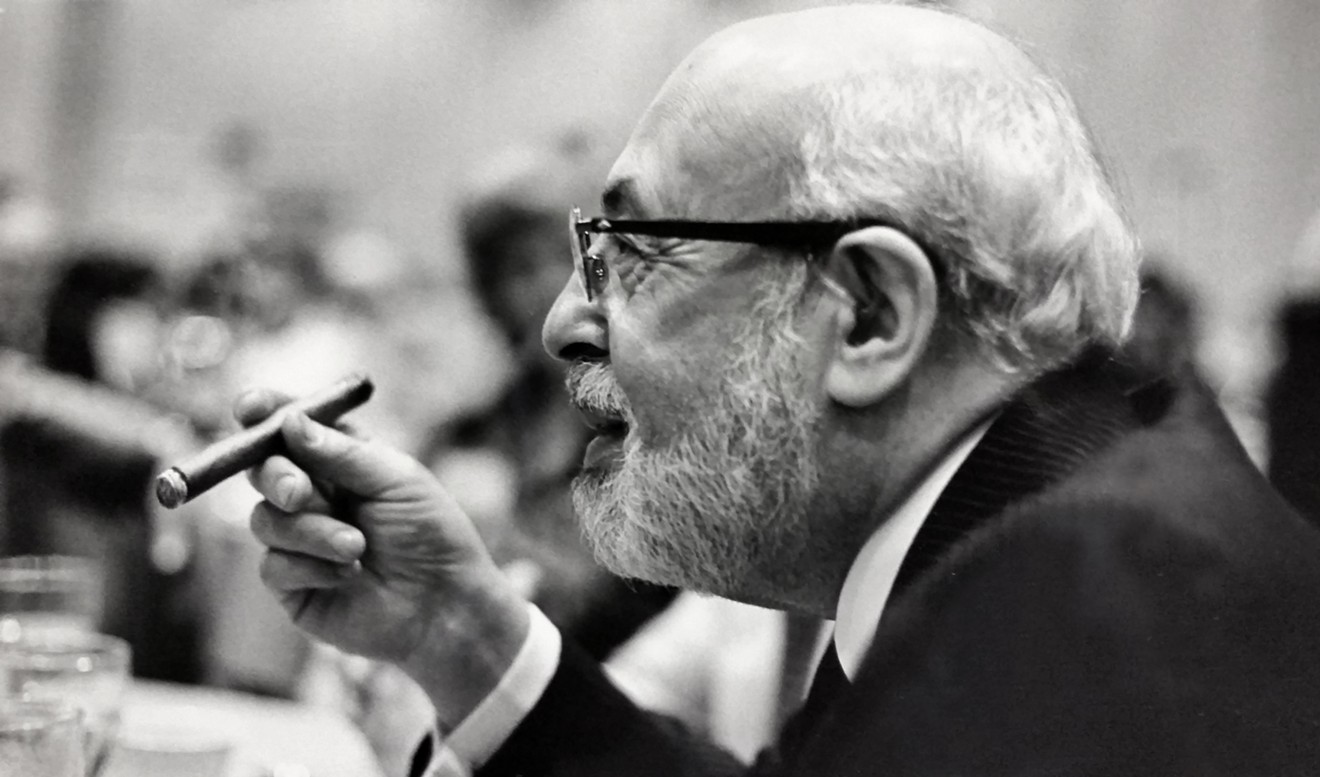With the skill of a master showman, Stanley Marcus made luxury retail shopping a distinctive Dallas experience.
Mr. Stanley: The Merchant Prince, a short film detailing his life, premiered last weekend in California. The six-minute film, which screened Saturday at the Jolla International Fashion Film Festival, has been nominated as the festival’s best documentary.
While a number of legendary men and women have helped shape Dallas’ character and added to its mystique, Marcus launched it into another sphere. Son of the co-founder of Neiman Marcus, Stanley took over the company when his father died. He not only transformed the face of luxury retailing with Neiman Marcus, but he also made Dallas a mecca of high fashion.
Directed by Dallas-based filmmaking duo Mike Mullins and Miles Hargrove, the film spotlights the merchant’s extraordinary achievements by incorporating rare footage from special collections at the University of North Texas and material from the vast Marcus archives at Southern Methodist University. Scenes provide glimpses of celebrities and fabled Fortnight extravaganzas while transporting viewers into the picturesque world of an extraordinary visionary whose keen eye for luxury helped fill “the store.”
“I traveled the world and could buy anything I thought I could sell,” Marcus says in the film. “And I had great enthusiasm that I could sell anything that I bought.”
And that he did throughout a store with a mystique all its own.
“It wasn’t like going into a department store,” Mullins says. “It was going into an experience. It was elevated.”“It wasn’t like going into a department store. It was going into an experience. It was elevated.” – Mike Mullins
tweet this
Mullins, who produced the Dallas Fashion Awards, came to know Marcus through his work in the international fashion world. He says Neiman Marcus’ driving force was not the bottom line.
“It was excellence,” he says. ”They would invest in the long term.”
Mullins says while employees had once cautioned Marcus about financial losses from The Zodiac Room, which he described as “the place to go for lunch in Dallas,” its clients' expenditures in the store more than made up for the deficit.
One of the film’s producers, Melina McKinnon Cain, says the film asks who was luckier: Stanley Marcus to have Dallas or Dallas to have Stanley Marcus?
“[Marcus] had always been a hero of mine, even as a little boy,” Mullins says, adding that making the film would “make sense to anybody who grew up in Texas during his reign as head of Neiman Marcus.
“There’s no comparison today,” he says.
Over the course of two years, the filmmakers collected 40 interviews from places such as New York, Los Angeles, Paris and Milan.
“There have been films made about fashion greats such as Valentino, Dior, Lagerfeld, Diana Vreeland and Bill Cunningham but none that features a larger-than-life retailer who was called Dallas’ most internationally famous citizen,” Mullins says.
The biggest challenge making the film, Mullins says, was finding someone critical of Marcus to provide tension for the story. But he says Marcus’ progressive viewpoints about controversial topics sometimes angered the store’s customers enough to cancel their charge accounts.
”He even used Neiman Marcus ads as editorial format, sometimes, to take a stand,” Mullins says.
Labeled "America’s Merchant Prince" and "The Melancholy Plato of Retailing," Marcus “achieved international recognition as an arbiter of taste” but was also known for “seeking a culture of inclusion evidenced by his hiring practices, philanthropy, international perspective and community leadership,” according to a press release. As Marcus sought to promote racial equality in the 1960s, he welcomed minorities into his store and extended preferential purchasing to companies that employed and trained them.
Mullins says Marcus’ intellect, imagination, wit and humor were all remarkable.
“For a mere $25,000, the store would fly to the Arctic and fill [a sterling silver ice bucket] with ice,” he says, and as for those customers who had canceled their accounts, they would generally return.
“They may not have liked his politics,” Mullins says, “but they loved his clothes and jewels and all that jazz.”











